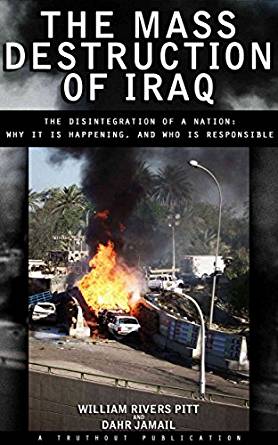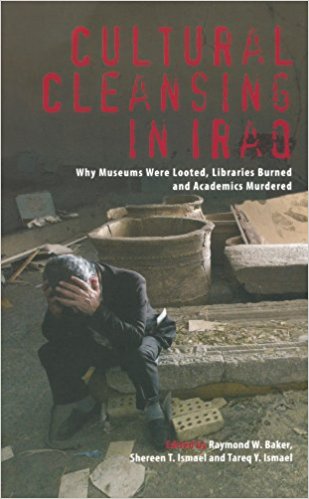
We Are the Middle of Forever
Get the book at Bookshop Get the book at Barnes & Noble Get the book at Amazon“Mankind has a chance to change the direction of this movement, do a roundabout turn, and move in the direction of peace, harmony, and respect for land and life. The time is right now. Later will be too late.” —Hopi elder Thomas Banyacya, from the introduction
Although for a great many people, the human impact on the Earth—countless species becoming extinct, pandemics claiming millions of lives, and climate crisis causing worldwide social and environmental upheaval—was not apparent until recently, this is not the case for all people or cultures. For the Indigenous people of the world, radical alteration of the planet, and of life itself, is a story that is many generations long. They have had to adapt, to persevere, and to be courageous and resourceful in the face of genocide and destruction—and their experience has given them a unique understanding of civilizational devastation.
An innovative work of research and reportage, We Are the Middle of Forever places Indigenous voices at the center of conversations about today’s environmental crisis. The book draws on interviews with people from different North American Indigenous cultures and communities, generations, and geographic regions, who share their knowledge and experience, their questions, their observations, and their dreams of maintaining the best relationship possible to all of life. A welcome antidote to the despair arising from the climate crisis, We Are the Middle of Forever brings to the forefront the perspectives of those who have long been attuned to climate change and will be an indispensable aid to those looking for new and different ideas and responses to the challenges we face.

The End of Ice
Get the book at Amazon Get the book at Barnes & Noble Get the book at IndieBound.orgAfter nearly a decade overseas as a war reporter, the acclaimed journalist Dahr Jamail returned to America to renew his passion for mountaineering, only to find that the slopes he had once climbed have been irrevocably changed by climate disruption. In response, Jamail embarks on a journey to the geographical front lines of this crisis—from Alaska to Australia’s Great Barrier Reef, via the Amazon rainforest—in order to discover the consequences to nature and to humans of the loss of ice.
In The End of Ice, we follow Jamail as he scales Denali, the highest peak in North America, dives in the warm crystal waters of the Pacific only to find ghostly coral reefs, and explores the tundra of St. Paul Island where he meets the last subsistence seal hunters of the Bering Sea and witnesses its melting glaciers. Accompanied by climate scientists and people whose families have fished, farmed, and lived in the areas he visits for centuries, Jamail begins to accept the fact that Earth, most likely, is in a hospice situation. Ironically, this allows him to renew his passion for the planet’s wild places, cherishing Earth in a way he has never been able to before.
Like no other book, The End of Ice offers a firsthand chronicle—including photographs throughout of Jamail on his journey across the world—of the catastrophic reality of our situation and the incalculable necessity of relishing this vulnerable, fragile planet while we still can.
The End of Ice is one of Smithsonian Magazine’s 10 Best Science Books of 2019, and was a finalist for the PEN/E.O. Wilson Literary Science Writing Award in 2020.

The Mass Destruction of Iraq: The Disintegration of a Nation: Why It Is Happening, and Who Is Responsible
Get the bookIn this e-book from Truthout, Pitt and Jamail “provide the definitive history of what happened to Iraq, why it happened, and who is responsible. From Pitt’s early reporting on the ultimate motivations behind the Iraq invasion, to Jamail’s unembedded reporting from Iraq as the occupation ground on, to the detailed breakdown of every lie we were told to justify this war, to the serial naming of those who had a hand in it, this book is the period at the end of a long, bleeding sentence.”
(Truthout)

The Will to Resist: Soldiers Who Refuse to Fight in Iraq and Afghanistan
Get the bookAn award-winning, unembedded journalist tells the hidden story of American soldiers turning against military occupation. (Now available in paperback with a new Afterword!)
“Dahr Jamail’s human portrait of the men and women who turned away from the project of empire should serve as a beacon…The truth they tell demands that we find the courage to make our nation accountable for the crimes committed in our name.”
– From the Foreword by Chris Hedges
Dahr Jamail, author of Beyond the Green Zone, brings us inside the movement of military resistance to the occupations of Iraq and Afghanistan. Since 2006, a majority in the United States have opposed the continued occupation of Iraq, and increasing skepticism surrounds the escalation in Afghanistan. But how do the soldiers who carry out the American occupations see their missions?
Fragmented reports of battalions refusing orders, of individual soldiers refusing redeployment and taking a public stand against the occupations have trickled into the mainstream reportage over the last five years. But how deep does the current of resistance run? What makes soldiers decide to go AWOL, file for conscientious objector status, and even serve sentences in military prison for their acts of refusal?
Dahr Jamail’s comprehensive study of today’s military resisters sheds new light on the contours of dissent within the ranks of the world’s most powerful military.
Praise for Dahr Jamail and The Will to Resist
“Every conflict spawns a handful of journalists who are willing to not only brave the war zone but to seek out the stories ignored by the press pack. The Iraq war has brought us Dahr Jamail.”
– Mother Jones
“Dahr Jamail is one of very few journalists who have displayed the courage—physical, intellectual, and moral courage—to tell the truth about the invasion of Iraq. In this outstanding book, he describes the often secret resistance within the U.S. military as soldiers reclaim their humanity and, with searing honesty, offer a glimpse of how America’s wars on the world might end.”
– John Pilger, award-winning independent journalist and author of Freedom Next Time: Resisting the Empire
“…the most important nonfiction book published this year.
– Political Media Review

Beyond the Green Zone
Get the bookVivid, insightful, and often in the participants’ own words, Beyond the Green Zone goes past the polished desks of the corporate media and Washington politicians to tell first hand of the reality of life under U.S. occupation.
“Dahr Jamail is truly courageous.He has taken great risks in the service of the truth.He has tirelessly told the stories of the victims, proud people in dire straits, writing with poignancy and immediacy, with eloquence and accuracy. If only the corporate networks would devote a small percentage of their resources to the type of reporting that Dahr Jamail accomplishes with next to nothing. The prospect of such a media system depends on the demands and activism of the public, a public that holds the networks, the reporters, and elected officials accountable, and a public that supports independent media.”
– From the Foreword by Amy Goodman and Dennis Moynihan

Cultural Cleansing in Iraq: Why Museums Were Looted, Libraries Burned and Academics Murdered
Get the bookEdited by Prof. Raymond W. Baker, Shereem T. Ismael and Tareq Y. Ismael
(With Chapter 6 “Killing the Intellectual Class” contributed by Dahr Jamail.)
Why did the invasion of Iraq result in cultural destruction and killings of intellectuals? Convention sees accidents of war and poor planning in a campaign to liberate Iraqis. The authors argue instead that the invasion aimed to dismantle the Iraqi state to remake it as a client regime. Post-invasion chaos created conditions under which the cultural foundations of the state could be undermined. The authors painstakingly document the consequences of the occupiers’ willful inaction and worse, which led to the ravaging of one of the world’s oldest recorded cultures. Targeted assassination of over 400 academics, kidnapping and the forced flight of thousands of doctors, lawyers, artists and other intellectuals add up to cultural cleansing. This important work lays to rest claims that the invasion aimed to free an educated population to develop its own culture of democracy.